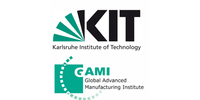GPA 2024/2025 Topics Review:
- Cost reduction strategies deployment
Participants structured cost-reduction measures into four streams: Engineering & Design to Cost, Process/System Improvements, Make-or-Buy, and Localization/Supply Chain. An exemplary city-bike functional breakdown helped to reveal where unnecessary features drove costs and guided targeted redesigns with the highest savings potential.
- China going global – The role of the Chinese plant
To bolster HQ competitiveness, the role of the China site was examined amid expanding Chinese rivals. Strengths—speed, cost, adaptability—were converted into actions such as targeted R&D shifts and production for emerging markets. North Star Methods were developed to enhance HQ–China coopetition (collaboration + competition).
Moving toward local autonomy, capability building, and own value creation—framed the session. Core enablers were presented, such as B/C-part localization and German–Chinese leadership. These enablers were placed on a 1.0 to 2.0 continuum and evaluated against three criteria: local know-how, site independence, and use of local technologies/partnerships.
- Digital lean production system deployment
Participants mapped best practices and challenges, classified tools by maturity from analog to autonomous, built an effort–benefit matrix to prioritize quick wins and major bets, and extracted project charters from successful deployments to shape implementation roadmaps for digital lean.
- Data-based decision-making
Decision systems were benchmarked across descriptive, diagnostic, predictive, and prescriptive levels; local and global KPIs were aligned, success drivers distilled, and shared guardrails and templates created to accelerate adoption of data-driven decision-making.
- Choosing the right level of automation
Ideation methods were applied in the workshop session to a real factory case, evaluating options from operator assistance to full automation and using poster sessions to identify plant-specific solutions and draft flexible, scalable implementation steps for individual lines.







